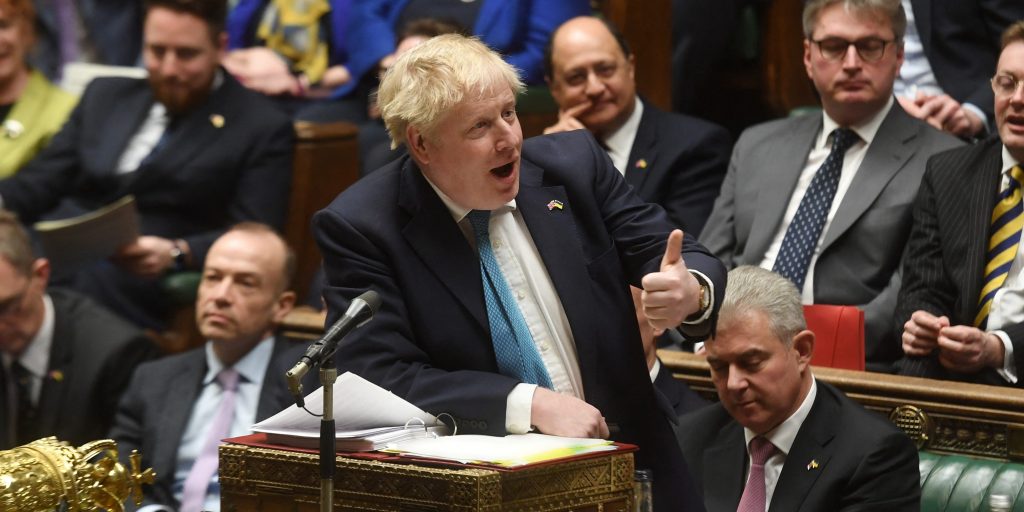- The government has blocked a request to publish No 10 staff communications to Boris Johnson.
- Johnson said he had been "repeatedly assured" no rules were broken. 126 fines have been issued for partygate.
- Revealing whether the records exist could prejudice a parliamentary probe, the government said.
The UK government has blocked a request to disclose records of any communication about so-called partygate between Boris Johnson and his staff, after the Prime Minister said he had been "repeatedly assured that the rules were not broken".
The police closed Operation Hillman, the official name for its partygate investigation, having handed out 126 fines.
Even disclosing whether or not such records are held could prejudice an investigation by the House of Commons' Privileges Committee, the government claimed. The parliamentary probe is expected to begin soon, now that the Metropolitan Police has finished its investigation into the events.
But MPs have accused the government of a cover-up.
Chris Bryant, the Labour chair of the Privileges Committee, who has recused himself from the probe, told Insider: "No 10 will make up any old excuse to avoid transparency. They should hand over whatever they've got immediately."
In its refusal to a freedom of information request for the records, the government is relying on an exemption typically used to stop requests for records relevant to ongoing law enforcement investigations.
This exemption permits the government to refuse to confirm or deny if it holds the records requested.
But in a previous response to the request, the government relied on a different exemption saying the records requested would be published later, suggesting the records do exist. The government later said the use of this exemption was incorrect.
Maurice Frankel, director at the Campaign for the Freedom of Information, told Insider the government's initial response implied the records exist.
"The only question is if the assurances were entirely oral, and no records were kept", Frankel said. "But it seems implausible that no note was taken, or that there no references to what had been said to him in an email to somebody, a copy of which would be held in Downing Street."
"There is no way I can see that an investigation by a House of Commons committee falls within [the exemption for law enforcement]", he added. "The only effect it could have on the investigation is if the prime minister had received no such assurances, and that was revealed by disclosing it."
"If the prime minister had constructed this out of his own imagination, that would give away something the Privileges Committee ought to be allowed to establish for itself."
At the end of April, a group of MPs on the Public Administration and Constitutional Affairs Committee criticised the Cabinet Office's handling of freedom of information requests.
There is now an internal investigation into the Cabinet Office's Clearing House unit, a body within the department which coordinates the processing of requests.
The department refused an offer from the FOI ombudsman, the Information Commissioner's Office, to conduct an external investigation.
The Cabinet Office declined to comment further.

